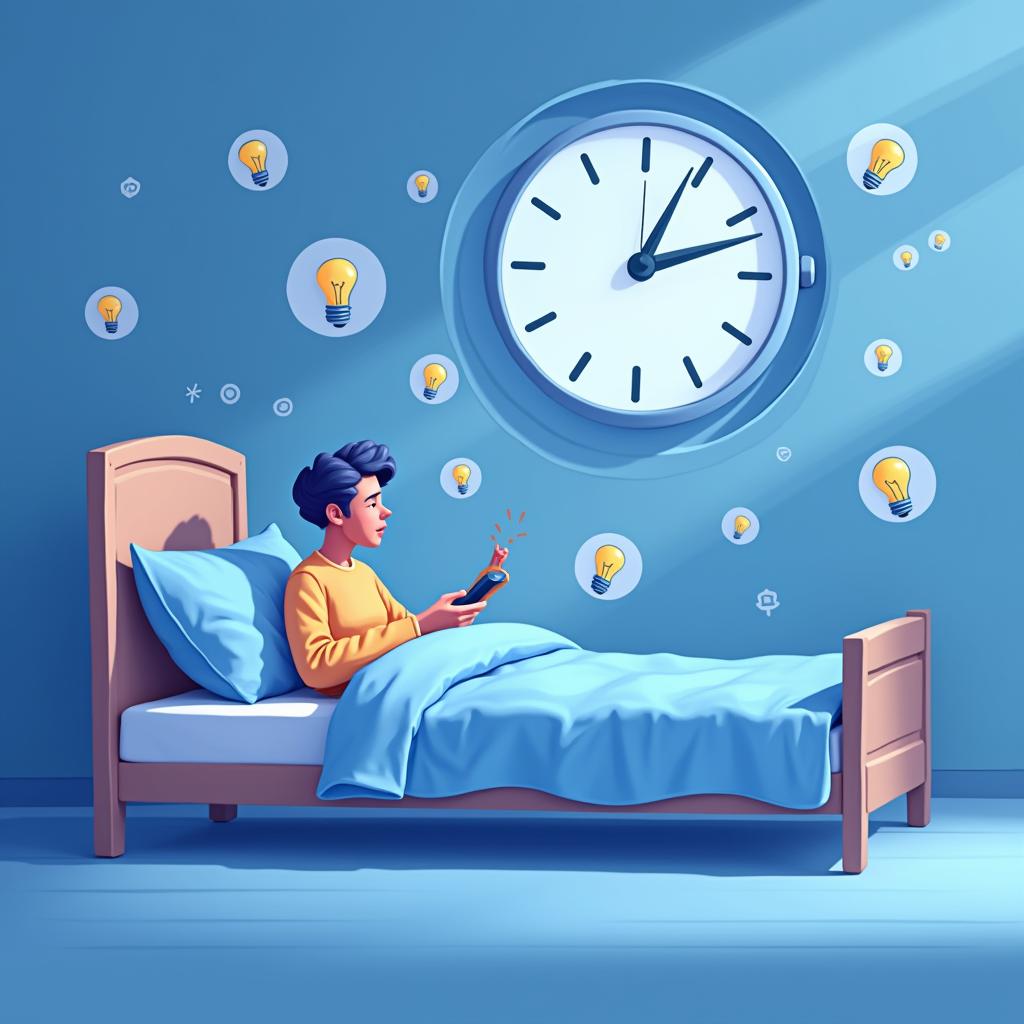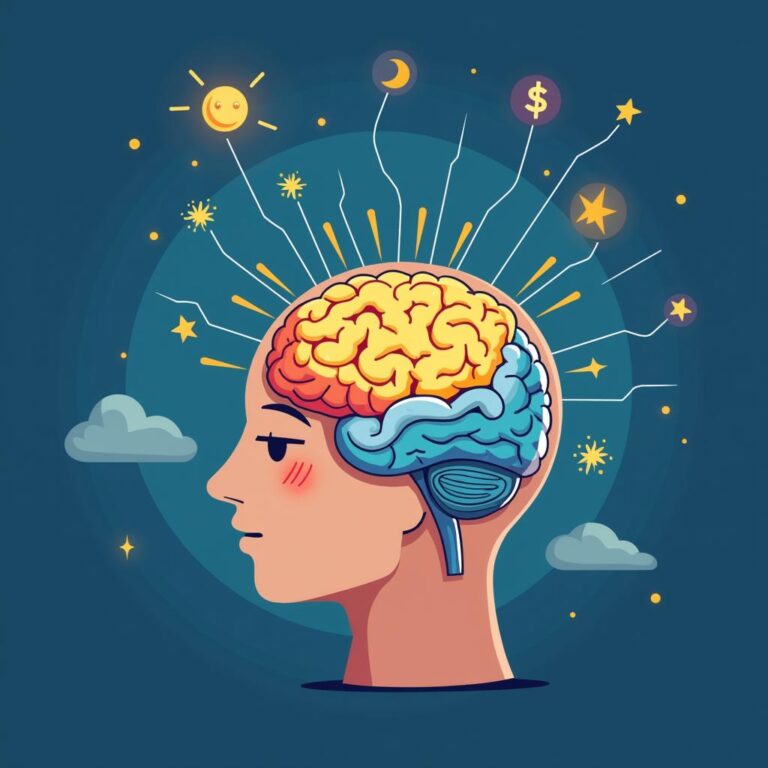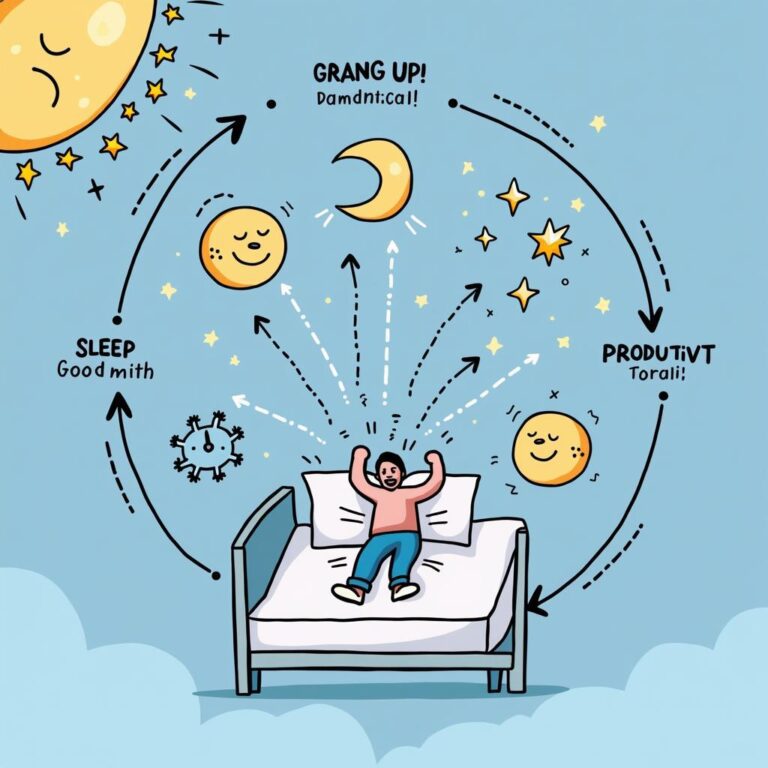Waking up at the right time can profoundly impact your day. While many people have their unique routines, science suggests that there are specific times and patterns that can optimize our mental and physical performance. In this article, we’ll explore the best time to wake up for enhanced focus and overall well-being.
The Science Behind Sleep Cycles
Understanding sleep cycles is crucial in determining the best time to wake up. A typical sleep cycle lasts about 90 minutes and consists of various stages, including light sleep, deep sleep, and REM (rapid eye movement) sleep. Waking up during a lighter sleep stage can help you feel more refreshed and focused throughout the day.
Sleep Stages
- Stage 1: Light sleep where you drift in and out of sleep.
- Stage 2: A deeper stage of sleep where your heart rate slows.
- Stage 3: Deep sleep crucial for physical recovery.
- Stage 4: REM sleep where dreaming occurs and is essential for mental recovery and learning.
Waking up at the end of a sleep cycle, which is roughly every 90 minutes, can help reduce grogginess and promote better focus throughout the day.
Recommended Sleep Duration
The National Sleep Foundation recommends that adults aim for 7-9 hours of sleep per night. To determine your ideal wake-up time, calculate backward from the time you need to start your day. For instance, if you have to wake up at 6:00 AM, aiming to fall asleep around 10:00 PM to 11:00 PM is ideal to complete at least 5-6 full sleep cycles.
The Ideal Wake-Up Time
While the ideal wake-up time might vary based on individual schedules and preferences, waking up between 6:00 AM to 7:00 AM generally allows people to take advantage of natural light, which can enhance mood and focus.
Importance of Morning Routine
Starting your day with a structured morning routine can further enhance focus and productivity. Following a consistent routine helps signal your brain that it’s time to wake up, leading to improved alertness.
Establishing a Morning Routine
- Hydrate: Begin your day by drinking a glass of water to rehydrate your body.
- Exercise: Incorporating physical activity boosts endorphins and increases blood flow to the brain.
- Healthy Breakfast: Consuming a nutritious breakfast fuels your brain for better focus.
- Meditation or Mindfulness: Engage in meditation or deep breathing exercises to clear your mind and enhance concentration.
Sunlight and its Effects on Wake Time
Your body’s circadian rhythms govern your biological clock, influencing sleep patterns and wakefulness. Exposure to natural light first thing in the morning can help reset these rhythms, making it easier to wake up and feel alert.
Maximizing Morning Sunlight
To optimize your wake-up time, consider the following:
- Open Blinds: Allow natural light to flood your living space as soon as you wake up.
- Morning Walk: If possible, take a short walk outside to maximize exposure to sunlight.
- Light Therapy: If natural light is limited, consider using light therapy lamps to simulate sunlight.
Customizing Your Wake-Up Time
Remember that everyone’s optimal wake-up time may vary based on personal schedules, responsibilities, and individual sleep needs. Some individuals may be more productive in the early morning, while others find themselves alert later in the day.
Listen to Your Body
Tuning into your body’s signals is essential. If you consistently wake up feeling groggy or fatigued, it might be an indication that you are either not getting enough sleep or not waking up at the right phase of your sleep cycle.
Adapting to Shifts in Your Schedule
Sometimes, life circumstances require us to adapt our sleep schedules, such as shifting work hours or travel. Whether adapting to a new routine or adjusting your wake-up time, it’s important to be consistent as your body takes time to adjust.
Tips for Adjusting Your Sleep Schedule
- Gradual Changes: Shift your sleep and wake times gradually, about 15-30 minutes earlier or later per day until you reach your desired wake-up time.
- Limit Screen Time: Reduce exposure to screens before bedtime to improve sleep quality.
- Create a Sleep-Inducing Environment: Ensure your bedroom is dark, cool, and quiet.
Conclusion
Determining the best time to wake up can make a significant difference in your daily focus, productivity, and overall well-being. By understanding your sleep cycles, establishing a consistent morning routine, and listening to your body, you can find the ideal wake-up time that works for you. Remember to adjust gradually to any changes and allow time for your body to adapt, ensuring you harness the full potential of each day.







